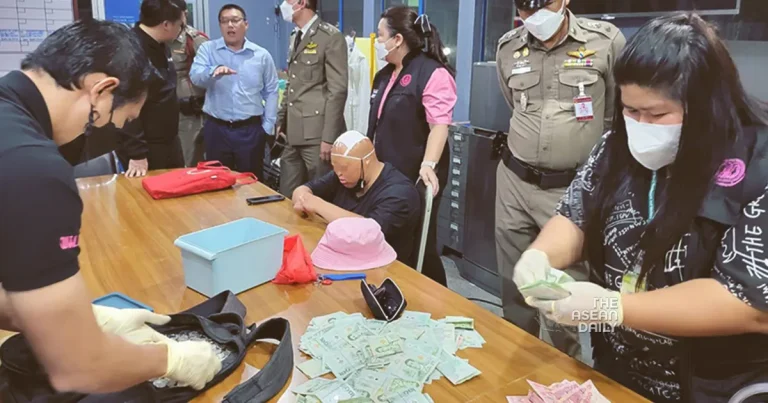22-11-2023 (BANGKOK) The Metropolitan Police Bureau in Bangkok has announced that the police will be conducting thorough screenings of Chinese visitors with facial and body disfiguration. This decision comes after it was discovered that some disfigured Chinese individuals had entered the country with the intention of begging on the streets, possibly in collaboration with local Thai groups.
According to Pol Maj Gen Amnat Traipote, deputy commissioner of the Metropolitan Police Bureau, six disfigured Chinese beggars were apprehended by the police between November 10 and 20. Three of them were fined amounts ranging from 100 to 500 baht. The Immigration Bureau has decided to blacklist all six individuals, prohibiting them from returning to the country for a period of 10 years. One of the beggars has already been deported, while the remaining five are being detained at the Immigration Bureau for further questioning.
During the investigation, the six beggars claimed that the scars on their faces and bodies were the result of fire incidents in China. However, they refused to provide any further details or information regarding their circumstances.
Pol Maj Gen Amnat revealed that some of the beggars had been accompanied by the same Thai translator. Additionally, two of them shared a hotel room in Bangkok’s Wang Thonglang district, while the other four stayed separately in different hotels across the capital. The police have not yet determined whether these individuals were part of a transnational human trafficking network or if the money they collected was being sent back to China.
Authorities suspect that the Chinese beggars were members of a larger gang, with Thai individuals overseeing and accommodating them. One of the beggars, a woman, arrived in Thailand by air on a tourist visa in June. Later, she applied for online education in the country and obtained a student visa, which extended her stay.
The six Chinese beggars targeted crowded locations and tourist destinations, taking advantage of the sympathetic nature of Thai people. According to Pol Maj Gen Amnat, each beggar earned approximately 10,000 baht per day.
While investigators have identified the locations where the beggars exchanged coins for 1,000-baht bills, they have yet to ascertain where the baht banknotes were being converted into yuan.
The national police chief and the Bangkok police chief have issued orders to crack down on beggars, as begging is illegal in Thailand. To prevent begging activities, the police will now closely scrutinize Chinese visitors with facial and body disfiguration, Pol Maj Gen Amnat announced.
Sarawut Mulpho, the director of welfare protection and life quality at the Ministry of Social Development and Human Security, reported that a total of 7,151 beggars were identified. Out of this number, 4,688 were Thai nationals, while 2,473 were foreigners, predominantly from Cambodia and Myanmar. The foreign beggars were found to be associated with organized gangs and were taking advantage of the government’s visa-free policy.
The recent crackdown on Chinese beggars with disfigured faces and bodies follows the efforts of activist Kanthat Pongpaiboonvej, also known as “good Samaritan” Kan Chompalang. Kan Chompalang encountered six Chinese beggars wearing student uniforms and suspected their involvement in a human trafficking ring, prompting him to launch a campaign against such activities.




